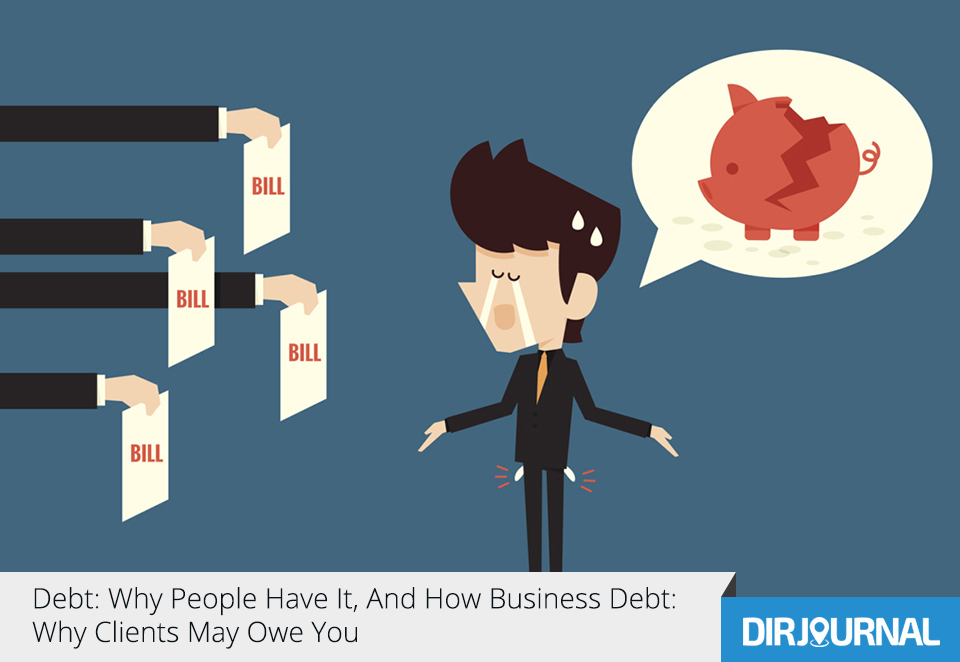Abusers of The System
Small and large businesses alike face the prospect of dealing with high-profile clients who have made it their regular practice to avoid paying as many bills as possible.
Truly, there are many reasons a debt may remain unpaid. It could be that the business in question is on tough times, and in reality they meant to pay you, but have lost the means.
It could be that the bill got lost in the shuffle, and all they need is a reminder. Or it could be that third category of system abusers. You don’t know immediately, though your intuition probably isn’t completely off the mark.
The fact is, you’ve got to be prepared for such contingencies. There are going to be situations you come against where a promised payment doesn’t arrive, and it may even put your own operations in jeopardy.
And to top it all off, your business model isn’t built on collecting debt.
Collection is in and of itself a business, with quite a few legal landmines hidden through the debt-collection fields.
There are statutes of limitations, protections, and bureaucratic delays which can’t properly be dealt with unless experience of a deep kind is brought to bear on the situation.
Having A Sustainable Model
You should expect that debt will be accrued by your business, and clients refusing to pay for well-rendered services, over time.
One thing you can do to help defray the impact of either scenario is to factor both exigencies into your operational model.
Ideally, you should operate with as little debt as possible. If you can pay for the rent of your offices at the beginning of the month, rather than the end, that makes sense.
If you can purchase goods, services, etc. directly, rather than financing them or suspending payment, that also makes a lot of sense.
Starting out, or expanding, sometimes the debt can’t be avoided. It can be metered, factored in, and controlled such that it doesn’t spiral out of control, however.
That said, you can’t control what those who owe you money are going to do. The best you can do is conscientiously monitor those with whom you conduct your affairs. With sales, though, sometimes you’ve got to take what you can get.
So establish detailed, up-to-the-moment records.
Make it a practice to check through them and check the progress of invoices. Establish payment dates immediately, and build up your cost structuring.
Half up front, half after completion of the job–that’s a good principle, especially if you make it so that the cost of operations is covered in the down-payment.
Then, even if you don’t receive the full and fair cost of your services/goods, at the very least you break even.
Be Creative, But Stay Above the Board
Emotion must be restrained.
Hiring a debt collection agency, or having one on file, is a sensible solution; but there are options you can also pursue.
You can write letters, set up a regular time to contact a group who owes your organization money and politely remind parties of the bill.
There are quite a few legal means of hounding a reticent client without going beyond your or their legal rights. But do your best to remain the “bigger person” as much as it is in your power to. There is a domino-effect nature to morality.
Every action has an equal and opposite reaction, physically; the same is true with our actions in a philosophical sense. Operate as honestly as possible.
When to Hire a Debt Collector
After a certain point in the billing cycle, you’re going to finally realize that the only way you’ll ever get paid is if you hire professional help. At this stage of the game, it’s time to hire a debt collector.
It doesn’t really matter what business model you practice. Managing debt is something that we all have to deal with in our businesses.
According to AmeriNote Xchange, mortgage note buyers, “Risk is a term used to describe the possibility of default/non-payment, or property value decreasing, among others.”
Ultimately, this means every business is at risk of dealing with unscrupulous clients that aren’t willing to pay their bills on time or even pay them at all.
So, when this happens, you have to do what’s right and take matters into your own hands.
As much as you might not like the idea of sharing your profits with somebody, it’s better to hire a debt collector and get something instead of nothing.
Right?
At the end of the day, you have to determine what’s best for you and your company.
You may prefer to let the debt go never work with that client again if they only all a small amount. It may be too big of a hassle to hire a debt collection agency to hunt down what’s due to you.
On the other side of the coin, if the company owes you a lot of money, you’d be crazy not to pursue some form of debt collection.
You can try interoffice tactics until the cows come home, but if nothing’s working you have to take it to the next level and hire professionals to help get the job done.













